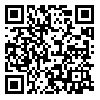Volume 21, Issue 63 (12-2021)
jgs 2021, 21(63): 443-464 |
Back to browse issues page
Download citation:
BibTeX | RIS | EndNote | Medlars | ProCite | Reference Manager | RefWorks
Send citation to:



BibTeX | RIS | EndNote | Medlars | ProCite | Reference Manager | RefWorks
Send citation to:
Lafaffchi M, Dehbashi Sharif M, Etessam I. (2021). Exploring a model of cultural characteristics in contemporary office buildings in Tehran with regard to the Technology usage (Case study: Official buildings in Tehran before and after the 1979 revolution). jgs. 21(63), : 23 doi:10.52547/jgs.21.63.443
URL: http://jgs.khu.ac.ir/article-1-3758-en.html
URL: http://jgs.khu.ac.ir/article-1-3758-en.html
1- Researcher, PhD in Architecture, Department of Architecture, Faculty of Architecture and Urban Planning, Central Tehran Branch, Islamic Azad University, Tehran, Iran, Researcher, PhD in Architecture, Department of Architecture, Faculty of Architecture and Urban Planning, Central Tehran Branch, Islamic Azad University, Tehran, Iran
2- Assistant Professor, Department of Architecture, Central Branch, Islamic Azad University, Tehran, Iran., Assistant Professor, Department of Architecture, Central Branch, Islamic Azad University, Tehran, Iran. ,Moz.dehbashi_sharif@iauctb.ac
3- Professor, Department of Architecture, Science and Research Branch, Islamic Azad University, Tehran, Iran., Professor, Department of Architecture, Science and Research Branch, Islamic Azad University, Tehran, Iran.
2- Assistant Professor, Department of Architecture, Central Branch, Islamic Azad University, Tehran, Iran., Assistant Professor, Department of Architecture, Central Branch, Islamic Azad University, Tehran, Iran. ,
3- Professor, Department of Architecture, Science and Research Branch, Islamic Azad University, Tehran, Iran., Professor, Department of Architecture, Science and Research Branch, Islamic Azad University, Tehran, Iran.
Abstract: (7321 Views)
In the contemporary century, with increasing development of technology, one of the challenges of contemporary architecture is to find its relationship with the culture. New technologies from industrialized countries with developmental goals are imported in an uncontrolled process. In contemporary Iranian architecture, technology has had a serious presence in various fields. The main purpose of the research was to investigate the cultural transformation of contemporary buildings in Tehran according to the application of technology. Due to the variety of types of use, this study focused on official complex compared to the two periods before and after the Islamic Revolution.The research method used in this research is combined (quantitative-qualitative). First, the components of technology and culture in accordance with contemporary architecture in the office buildings of Tehran have been developed by qualitative research method, then by quantitative research method, the relationship between key factors involved and the share of each component has been investigated. To examine the hypothesis, the relationship of three variables of culture, technology and architecture has been identified. In this study, cultural developments have been evaluated in two dimensions: mental and objective components. The results show that the effects of metamorphosis have had the greatest impact on the objective components of culture, including individual and social strata.Finally, the issue of technology application in contemporary office buildings in Tehran with a culture-based approach has been proposed in the form of a strategic model that will lead to the correct application of technology in office buildings in Tehran.
Article number: 23
Keywords: Technology, Culture, Iranian Contemporary Architecture, Tehran Official Buildings, Islamic Reveloution.
Type of Study: Research |
Send email to the article author
| Rights and permissions | |
 |
This work is licensed under a Creative Commons Attribution-NonCommercial 4.0 International License. |

This work is licensed under a Creative Commons — Attribution-NonCommercial 4.0 International (CC BY-NC 4.0)






